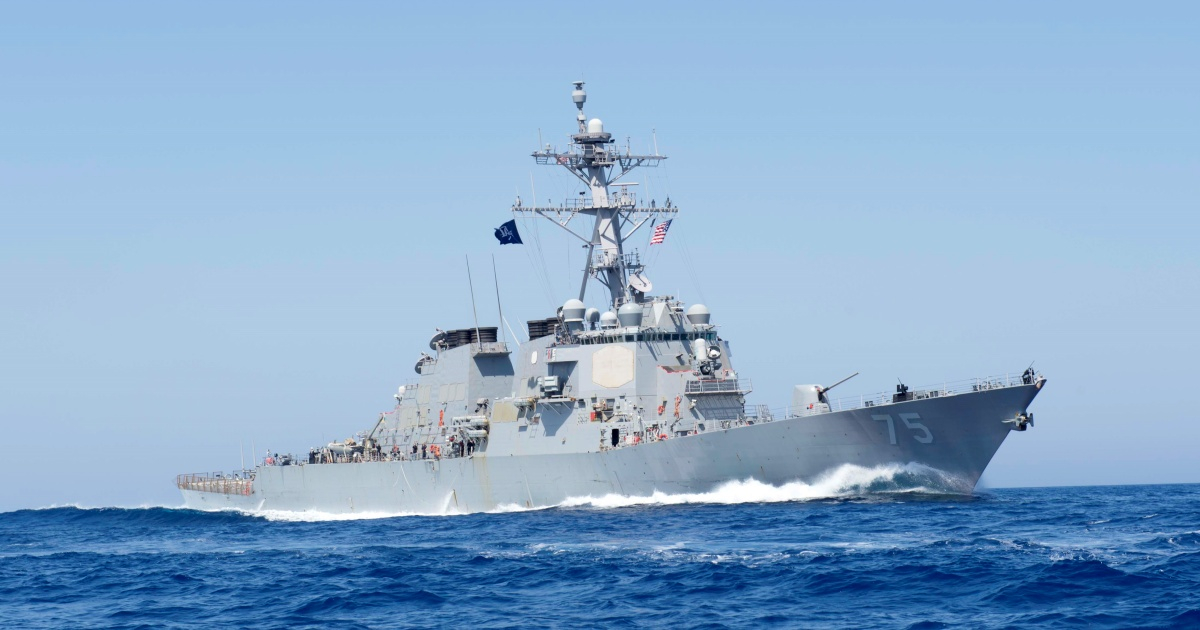In recent hours, the United States government has deployed several warships and a submarine reconnaissance aircraft to track the course of the Russian fleet expected to arrive in Cuba this Wednesday. The U.S. deployment includes two destroyers: the USS Truxtun and the USS Donald Cook, as well as a Coast Guard vessel, the Stone, and a Boeing P-8 maritime patrol aircraft.
Maritime and air tracking data reported by the American magazine Newsweek reveals that in addition to the American ships, the Royal Canadian Navy frigate Ville de Québec is also in the area. Open Source Intelligence (OSINT) analysts published updates on June 11 showing that, in addition to the movement of the American destroyers, Coast Guard vessel, and Canadian frigate, at least one P-8A Poseidon aircraft from the Navy and a Canadian CP-140 Aurora appeared to be conducting surveillance.
Jesús Daniel Romero, a retired lieutenant commander from U.S. Navy Intelligence, believes that despite the Biden administration's downplaying of the Russian visit to Cuba, the Russian deployment just 90 miles off the American coast is indeed worrisome. Romero argues that the presence of this Russian naval war deployment in the Caribbean should not be taken lightly.
The Ministry of Foreign Affairs (MINREX) of Cuba announced last week the official visit of several Russian Navy ships to Havana, including a nuclear-powered submarine. "Between June 12 and 17, 2024, an official visit to the port of Havana will be made by a Russian Federation naval detachment, consisting of four ships: the frigate 'Gorshkov,' the nuclear-powered submarine 'Kazan,' the fleet tanker 'Pashin,' and the salvage tug 'Nikolai Chiker'," MINREX said in a statement last Thursday.
The official note added that the visit is in line with "the historic friendship relations between Cuba and the Russian Federation" and that it "strictly adheres to international regulations of which Cuba is a state party." MINREX clarified that none of the ships are carrying nuclear weapons and that their stop in the country does not pose a threat to the region.
The U.S. government later stated that it is aware of the Russian combat vessels expected to arrive in Cuba and the Caribbean for a military exercise. The same source indicated that Russia would conduct intense naval and air activity in the Caribbean near the United States this summer, culminating in a global Russian naval exercise in the fall. However, the Biden administration said they do not view the deployment with alarm, noting that Russia has sent ships to the Western Hemisphere annually from 2013 to 2020.
They specified that "Russia's deployments are part of routine naval activity" and that the U.S. government is not concerned as they do not represent a direct threat to the United States. Cuban-American Senator Marco Rubio urged President Joe Biden not to stand idly by, reminding that there has not been a Russian submarine with nuclear missile capabilities operating in the Caribbean for over 30 years.
Key Concerns About the Russian Naval Fleet Near Cuba
The arrival of the Russian naval fleet near Cuba has raised several important questions. Here we address some of the key concerns and provide detailed answers.
Why is the U.S. concerned about the Russian fleet near Cuba?
The U.S. is concerned because the Russian fleet, including a nuclear-powered submarine, is approaching just 90 miles off the American coast. This proximity raises security concerns given the geopolitical tensions between the two nations.
What is the significance of the P-8A Poseidon and CP-140 Aurora in this scenario?
The P-8A Poseidon and CP-140 Aurora are advanced maritime patrol aircraft used for surveillance and reconnaissance. Their presence signifies an intensive monitoring effort by both the U.S. and Canadian forces to track the activities of the Russian fleet.
What is Cuba's official stance on the Russian naval visit?
Cuba's Ministry of Foreign Affairs has stated that the visit is in line with the historic friendship between Cuba and Russia and adheres to international regulations. They have also clarified that none of the Russian ships are carrying nuclear weapons.
